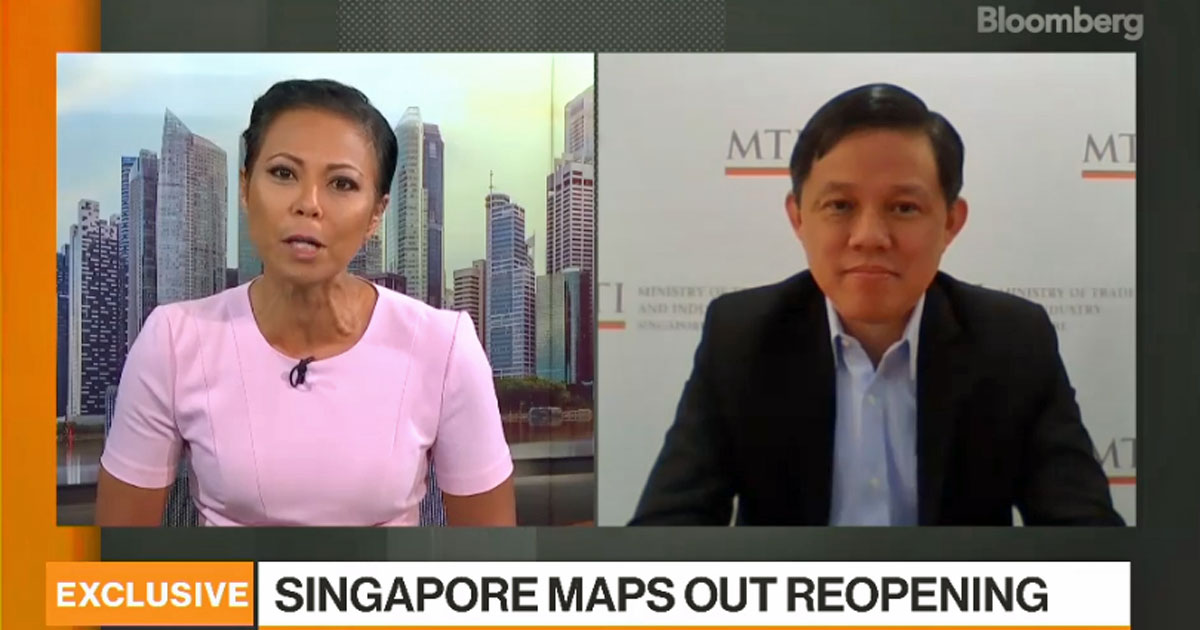Singapore has to dissolve Parliament by January 2021 and there's "not much time" left for the government to hold its next general election, Minister for Trade and Industry Chan Chun Sing said on Wednesday, May 20, 2020.
"A lot of people think that we have all the time in the world until next April to call the election," Chan said following an interview with Bloomberg TV, in what sounded like a jibe directed at the opposition who have suggested postponing the election.
He added: "That's technically correct, but what people do not remember is that parliament will be dissolved in January because parliament has to be dissolved five years after the first sitting for this term of government."
This gives the time frame of about three months, which is when elections would have to be called, abiding by the constitution.
Chan said there's actually "not much time" judging by this tight deadline.
Singaporeans will judge ruling party
Chan also said he believes Singaporeans will judge the ruling party according to its long-term performance, and not just its recent effectiveness with the Covid-19 pandemic.
Chan said he thinks Singaporeans "are wise enough to look at the government performance not just on an episodic event" when the time to vote comes.
Framing the election as one about the future of Singapore, Chan said: "We would like, when the opportunity arises, to have a strong mandate because the challenges that we are going to face in the coming years will indeed be the challenge of an entire generation."
He added that it's not so much whether "we are in a crisis or not, but how we get through a crisis and emerge stronger".
"That would be how we will go to the polls and I think that will be how Singaporeans will judge us over all these years," he said.
Talked about his own interview
Chan posted about his interview on Facebook a few hours after it concluded:
His post did not touch on the upcoming election, but mentioned the reopening of the Singapore economy from June 2 as the Covid-19 pandemic is expected to die down.He wrote that about three-quarters of the economy will reopen and many will remain working from home given that 57 percent of the workforce are in PMET jobs.
Chan wrote in his post:
I was also asked about the economic impact from our lifting of the circuit breaker measures from 2 June. Essentially, this means that more than ¾ of our economy will open. Cross-border business activities will resume, if not already so. The structure of our economy, with about 57% of our workforce in PMET jobs, allows many of us to work from home.
He also listed four sets of risks:
Firstly, there is a high risk of recurring infection waves amongst many countries. Secondly, beyond the urgent need to suppress the epidemic curve, we have to flatten the unemployment and business closure curves. Thirdly, there are policy-induced risks as some countries may take on more protectionist measures during this period, when we should be looking at greater inter-dependence for better resilience. Finally, many countries will need fiscal resources to support their businesses and workers through this period, but not all of them may be able to do so and they may resort to quantitative easing or competitive devaluation to get their economies back on track. If so, there will be severe global knock-on effects.
Background
Singapore has more than 29,000 confirmed cases of Covid-19 -- one of the highest infection rates in Asia.
More than 90 per cent of the cases are among low-wage migrant workers living in dormitories.
The outbreak there has posed a challenge to a national virus response, despite the country being lauded in the initial stages of the pandemic for keeping infections under control.
Top photo via Bloomberg
If you like what you read, follow us on Facebook, Instagram, Twitter and Telegram to get the latest updates.
